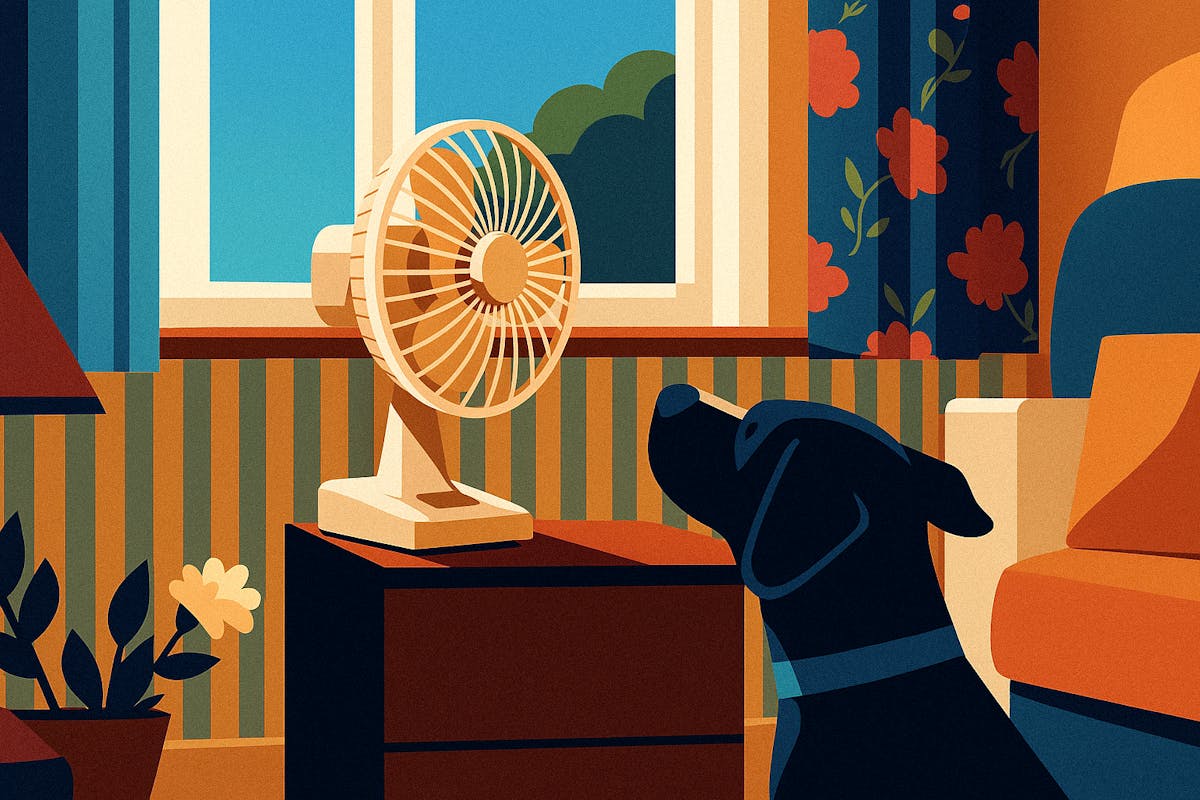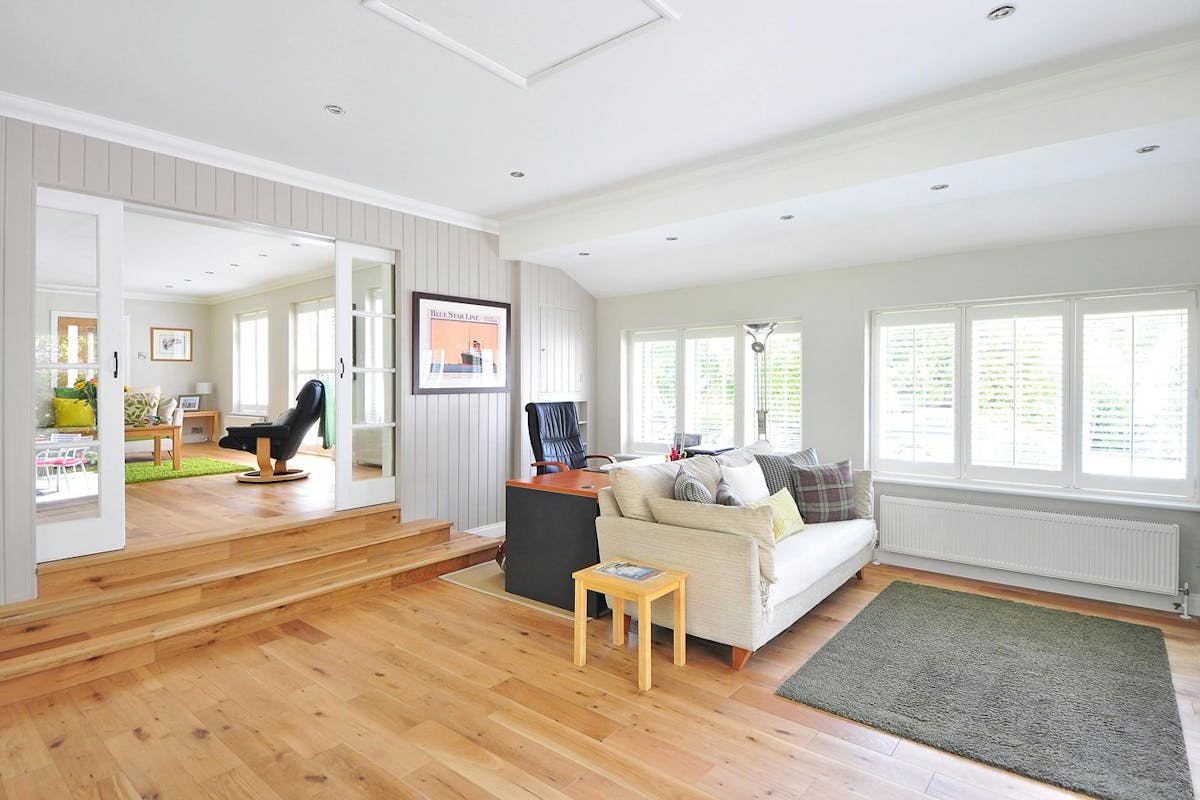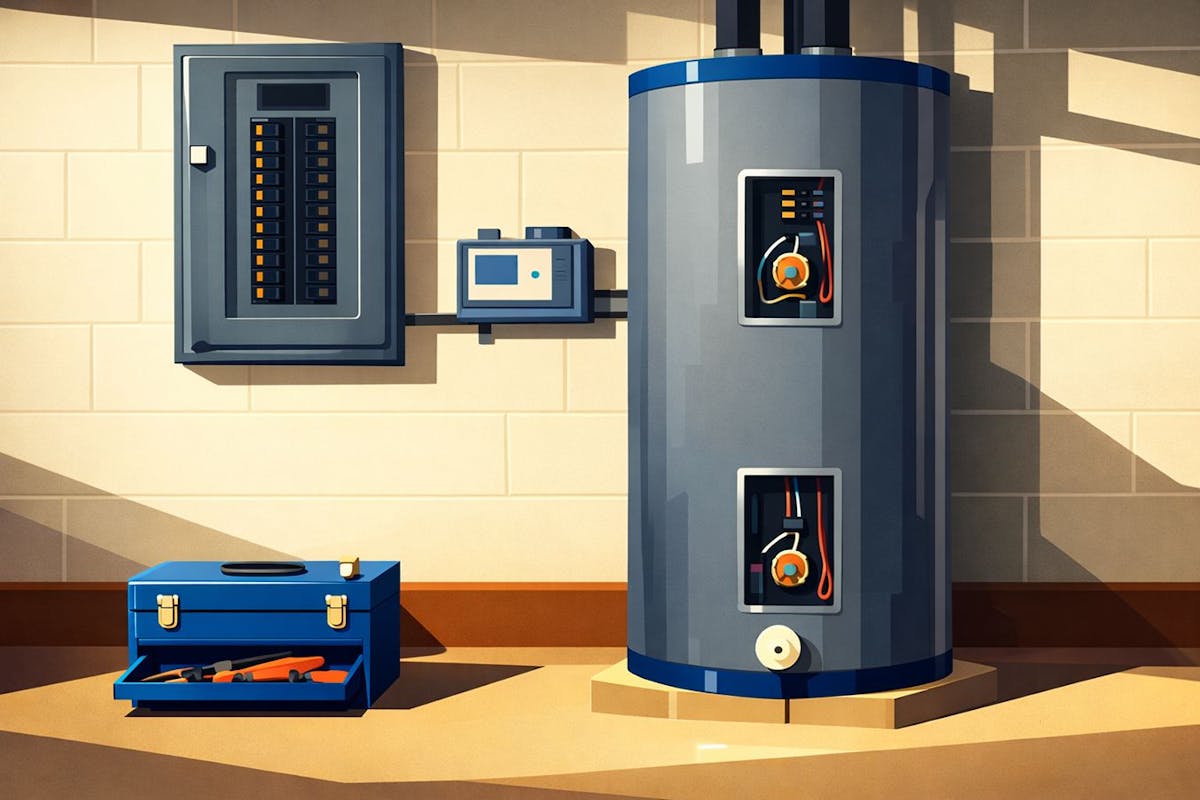13 Tips to Save on Energy This Summer
Last edited
Author
Andrew Giermak
Solar and Electrification Writer and Editor
Editor
Andrew Blok
Electrification and Solar Writer and Editor

Thanks to higher temps and higher AC usage, electric bills typically go up in the summer. But just because electric bills go up doesn’t mean they have to go way up.
There are plenty of things you can do — small and large — that can help you save energy (and money!) this summer. Here’s a baker’s dozen tips to get you started.
See how much you can save with home energy changes
Adjust Your Thermostat
If you don’t want your electricity bill to skyrocket in the summer, the U.S. Department of Energy recommends the following thermostat settings:
- 78º F during the day if people are home
- 85º F during the day if no one is home
- 82º F at night
To be clear, that does feel high for most people, so we recommend setting your thermostat as high as your personal comfort allows. Start by raising your normal setting by 1º each day to give your body time to adjust. If you can raise your thermostat at least 7 degrees higher than its normal setting, you could reduce your electric bill by up to 10% each year.
When you’re not at home, you can set the temperature higher or turn off the AC altogether to save more energy.
Install a Programmable Thermostat
The best way to ensure your home uses those recommended temperature settings is to install a programmable thermostat. By creating a simple schedule based on the habits of the people living in your home, you can guarantee your thermostat goes to the appropriate energy-saving temperature at the right time of day.
If you invest in a smart thermostat, it’s easier to adjust those settings, and you could save even more money with the additional benefits they provide.
Cool Your Home With Fans
A ceiling fan can make your home feel up to 4º degrees cooler than what the thermostat actually says. That way, you can raise your thermostat setting to those recommendations above, and still be comfortable. Who doesn’t like a light breeze on the hot summer days, especially when you can save on your energy costs without breaking a sweat?
If your home doesn’t have ceiling fans, you can achieve a similar effect with a few inexpensive portable fans to move around the cool air. With some trial and error, you can determine the best placement that circulates air most effectively and helps cool your home.
Upgrade Your HVAC System
Improving your heating, ventilation, and air conditioning (HVAC) system — which accounts for as much as half of a home’s energy usage — is a sensible long-term investment that can help achieve lower energy costs. A high efficiency heat pump can save you energy compared to older, less efficient solutions.
Look for Energy Star-certified systems, which can save you 20% when they are installed correctly and replace a model that’s 10 years old or older. Pay attention to seasonal energy efficiency ratio (SEER) and energy efficiency ratio (EER) ratings, which measure how efficient the units are.
Maintain Your HVAC System
Regular maintenance of your HVAC system is important to keeping it running as efficiently as possible.
An easy way to remember is to pick your favorite spring holiday, and use that date as a reminder to have someone come out and check your system to ensure it operates as effectively as possible before the high temperatures of summer arrive.
See how much you can save with home energy changes
Avoid Electricity During Peak Hours
If you’re on a time-of-use plan from your utility, shifting electricity usage away from more expensive peak hours (often in the late afternoon and early evening) can save you money. Whether that means doing laundry earlier or later or adjusting your thermostat in the late afternoon, shifting your electricity consumption can cut into your bill.
Check Your Insulation
Insulation isn’t just for keeping your house warm in winter. It also keeps hot air out and cold air in during the summer. This allows you to conserve energy by running your air conditioner less often.
Take the time to check for air leaks and make sure your home is properly insulated.
Keep Your Kitchen Cool
Your oven and stove can emit a lot of heat into your home, which will make your air conditioner work even harder. In fact, ovens and stoves can raise your kitchen’s temperature by up to 10º.
Instead, cook with a microwave in the summer months, or fire up the outdoor grill to minimize the heat generated from the kitchen.
Do Laundry at Night
Much like your kitchen appliances, your washer and dryer can also warm up your house. Many detergents are designed to use cold water, so you can also change to a cold water cycle to limit how much work your water heater needs to do.
By saving your laundry until 8 pm or later, you can avoid heating up your home unnecessarily, and you might also be able to take advantage of lower evening time-of-use rates.
Turn Down the Water Heater Temperature
You’re probably not looking forward to a hot shower on hot summer days, so use this as an opportunity to turn down the temperature of your water heater. Some manufacturers set their default water heater thermostat temperature to 140ºF, but most households can get by with them set at 120ºF.
Water heaters lose heat to the air that surrounds your water heater. By adjusting your temperature down to 120ºF, the Department of Energy estimates you can save anywhere from $36 to $61 annually by avoiding excess standby heat loss.
Upgrade Your Light Bulbs
You might not think about the heat that older incandescent bulbs are creating, but every little bit counts when you’re trying to cut down on summer energy bills.
By switching to compact fluorescent or LED bulbs (or smart LED bulbs) you can save up to $80 per bulb in energy costs, while helping to further reduce the amount of time your air conditioner needs to be on.
Look at Switching Energy Plans
If you live in an area with deregulated electricity, you may be able to switch electricity providers and save. Finding a lower rate can generate savings on every kilowatt-hour you use. Be sure to read the fine print.
If you have solar panels or a home battery, you can even find plans that take advantage of both.
Go Solar
By installing a solar power system on your home, you can take control of your energy generation and consumption, so you don’t have to worry about fluctuating energy costs for years to come. Your solar panels can use sunny summer days to generate the electricity you need, so you don’t have to draw as much energy from the utility grid.
When you follow these cost-saving tips, you can also reduce the amount of electricity you need at night, further lowering your energy bills.
Ready to go solar with Palmetto? Check out our solar savings calculator or energy advisor today to see how solar energy and home electrification may work for your home.
See what home electrification can do for you:
Frequently Asked Questions
Is new insulation in my home worth it?
Yes, new insulation is usually worth it for multiple reasons. Improved insulation can significantly reduce energy bills, improve indoor comfort, and give you protection against issues like moisture and mold.
Can I save money by using power during off-peak hours?
If you’re on a time-of-use plan and can use more energy at home during off-peak hours, you can save money. There are many ways to avoid or limit electricity usage in your home during peak hours. You can save the most by using large energy-users such as a washing machine, dryer, dishwasher, or oven during off-peak hours.
Does solar really save you money?
Yes. Solar can save you money by helping you avoid buying electricity from your utility, or earning your bill credits to offset your use. Solar isn’t a fit for everyone, but many people have real potential to save.


